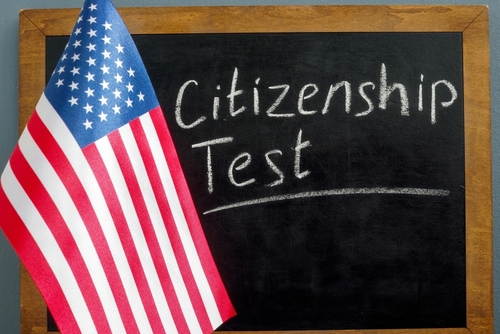 Embarking on the journey toward U.S. citizenship is an arduous process that demands time, effort, and mental sharpness. For some individuals, however, undergoing the standard immigration citizenship test may not be feasible due to physical or developmental disabilities or mental impairments. Understanding the avenues for an exemption is crucial. This article aims to provide a comprehensive overview of the Citizenship Examination Waiver, the medical certification process for disability exemption, and the vital role of Immigration Psychology in this scenario.
Embarking on the journey toward U.S. citizenship is an arduous process that demands time, effort, and mental sharpness. For some individuals, however, undergoing the standard immigration citizenship test may not be feasible due to physical or developmental disabilities or mental impairments. Understanding the avenues for an exemption is crucial. This article aims to provide a comprehensive overview of the Citizenship Examination Waiver, the medical certification process for disability exemption, and the vital role of Immigration Psychology in this scenario.
Understanding Citizenship Examination Waiver
The Citizenship Examination Waiver, known legally as Form N-648, is a provision offered by the United States Citizenship and Immigration Services (USCIS). This waiver allows qualified medical professionals to certify that an individual is unable to partake in the standard U.S. citizenship exam due to medical conditions affecting their cognitive or functional abilities. Substantive proof of disability must accompany the N-648 Form. This includes medical records and other pertinent documents that validate the need for a citizenship exam exemption.
Medical Certification Proving Disability/Impairment
USCIS has specific regulations about who can complete the medical certification for a citizenship examination waiver. Only licensed medical doctors, doctors of osteopathy, or clinical psychologists are authorized to complete N-648.
The medical professional responsible for the evaluation conducts a comprehensive review that extends beyond a mere checklist of symptoms. This review encompasses a detailed analysis of the applicant’s medical history, current medications, and existing physical or psychological impairments.
Various diagnostic tests may be administered, depending on the nature of the disability, to measure its impact on the individual’s ability to understand, learn, and remember the essential information needed to pass the U.S. citizenship exam. These methods are standardized to ensure objectivity and accuracy.
The certification process must comply with federal laws and regulations. A hasty or incomplete evaluation can result in the denial of the N-648 Form. Therefore, the medical professional must adhere strictly to the USCIS guidelines, ensuring that the evaluation is thorough and substantiated by relevant medical records.
After the evaluation, the medical professional fills out Form N-648, providing a clinical diagnosis and explaining how the applicant’s condition affects their ability to learn or remember the information required for the citizenship test.
By adhering to these stringent guidelines and choosing a qualified medical professional for the evaluation, applicants can fortify their case for a citizenship exam exemption. This certification is not merely a procedural step but a critical component that can significantly affect the outcome of an individual’s application for U.S. citizenship.
How an Immigration Psychological Evaluation Can Help Prove Exemption From Citizenship Test
When it comes to measuring the nature and severity of impairments that might qualify an individual for an exemption from the citizenship test, the importance of an immigration psychology evaluation is indispensable.
- Objective Assessments: Immigration psychology evaluations are objective assessments to explore whether a “physical or developmental disability or mental impairment” hinders a person’s ability to take the citizenship exam.
- Tailored Evaluations: Each evaluation is tailored to address the specific conditions affecting an individual’s cognitive and functional abilities. This meticulous approach aids in generating a robust case for citizenship exam exemption.
Understanding the intricacies of the Citizenship Examination Waiver process and obtaining the requisite medical certification for disability exemption can be overwhelming. At Immigration Psychology, we aid those who cannot take the standard immigration citizenship test. From conducting thorough psychology evaluations for immigration to helping complete Form N-648, we offer invaluable support in navigating the complex landscape of citizenship exam exemptions.
Contact us today for guidance and a tailored approach that caters to your unique circumstances. We offer free consultation across 39 states and adhere to HIPAA-compliant secure video conferencing methods for evaluations, ensuring accessibility and privacy.